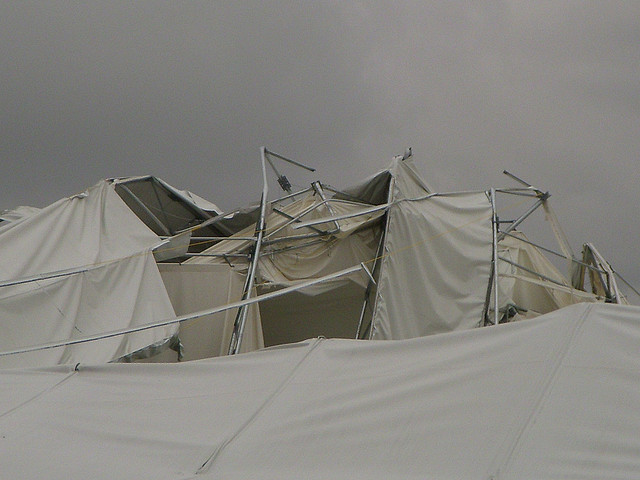June 3, 2014
An engineer must obtain and maintain a Professional Engineer’s license from the APELSCIDLA Board to practice in the Commonwealth of Virginia. Pursuant to professional regulations, when an engineer, or other design professional, completes a set of drawings, he affixes his professional seal with the date and signature. His seal displays his professional license number. This finishing touch assures the reader, especially the owner and the builder, that the plans are ready to go.
If the project built according to the stamped plans fail, one would expect a claim against the engineering firm. With smaller design firms, the customer may only interact with one representative who handles everything. In such a case, what about engineer personal liability? On May 20, 2014, a federal judge in southwest Virginia issued an opinion in a case where the owner of a collapsing feed barn filed suit against an engineer after a barn he designed fell apart. The opinion shows the tension between the interests of freedom of contract and consumer protection in professional malpractice cases.
Ken McConnell hired Servinsky Engineering, PLLC to design a foundation for a barn on his farm. Mark Servinsky, a Virginia Professional Engineer, was its principal. The foundation constructed according to Servinsky’s plans failed, damaging the structure and tearing the fabric roof. The barn cannot be used safely. McConnell sued both the Servinsky firm and Mr. Servinsky personally. The engineering firm filed for bankruptcy protection. Mr. Servinsky filed a motion to have the personal claims against him dismissed.
McConnell alleged that Mr. Servinsky was personally liable for negligently performing the engineering work that resulted in an unusable barn. McConnell argued for liability on the grounds that Virginia law requires an engineer to affix his professional seal, signature and date to his drawings. Judge James Jones ruled that only the firm, and not the personal defendant, could be liable under the contract with McConnell. Here are a few takeaways in this judicial opinion:
- Privity of Contract: This is a legal principle whereby (except in limited situations) only the parties to a contract may sue other parties to the contract. Whether contractual privity is required in malpractice cases varies by profession and jurisdiction. If the customer sues for an engineer’s failure to meet the expectations set by the contract, then only the parties to the contract may be sued. Judge Jones does not address any arguments that McConnell’s contract was with anyone other than the engineering firm.
- Professional Regulations: Unless they specifically provide for personal liability, laws governing design professionals create duties surrounding licensure, not liability to consumers. The state board decides who can or cannot have a license.
- Professional Standards: If personal liability is difficult to prove and bankruptcy is available, what assurances does working with a professional provide to consumers? Judge Jones observed that in malpractice cases, the professional standards are implicit terms to any contract for services with a professional engineer. The professional standards fill in gaps as to the duty of care in performance of the contract. That is why negligence is discussed in these types of cases. The professional services firm cannot hide behind the absence of a specific term in the contract when there is a professional standard that articulates that duty.
Judge Jones dismissed McConnell’s claims against Mr. Servinsky personally, finding that the professional seal did not create professional duties to the customer above & beyond the professional services contract.
The Bankruptcy Court allowed McConnell’s suit against the engineering firm to proceed, since it was covered by insurance. That case is set to go to trial later this year. Servinsky’s engineer license provided McConnell with a potential remedy, but not by personal liability. The license was the prerequisite by which Servinsky to obtain a professional liability policy that may cover McConnell’s claim.
Case Citation: McConnell v. Servinsky Engineering, PLLC, 22 F.Supp.3d 610 (W.D. Va. 2014)
Photo Credit: Silver Smith, 2009″ Si1very via photopin cc (I could not find a fabric barn roof photo – this is actually of the Dallas Cowboys practice facility, not the facts of case discussed)


